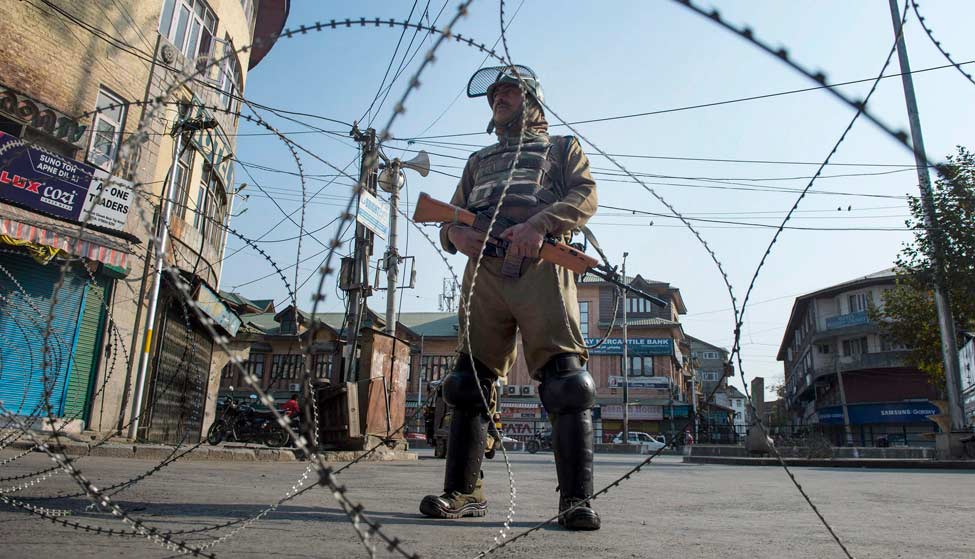Is the Centre trying to create a more conducive atmosphere for the peace dialogue to be initiated soon by its special representative for Jammu and Kashmir? Or are political compulsions still driving its agenda? The Union government's plea in the Supreme Court on Monday seeking an adjournment of six months on the hearing of petitions filed against the Article 35A has baffled many and pleased some. The apex court on Monday adjourned the matter for three months.
Former JK DGP Ashok Bhan feels that the government’s decision was a well thought one, given that it has decided to send its special representative to the state, Dineshwar Sharma, to initiate a peace dialogue with various sections of society.
Article 35A draws strength from article 370 of the constitution which gives special status to the state of Jammu and Kashmir.
“The central government's plea before the SC to defer the hearing of Special Status case under Article 35 A of the Constitution is indicative of its seriousness to engage in a purposeful dialogue. Deferring of the case by the apex court creates a more conducive atmosphere for the Interlocutor to begin his work,'' Bhan told THE WEEK.
However, former JK interlocutor M.M. Ansari said that the government's plea reflects its own political compulsions. “This is how the alliance of the BJP and PDP can remain intact,'' he said.
While Ansari feels the job of the special representative will be a ''futile exercise'' because the government is treating it solely as a security problem, Bhan said engagement is an essence of any conflict resolution exercise and the government was trying to do just that.
“With situation in Jammu and Kashmir showing signs of improvement after a turbulent 2016, the decision of the government to appoint a representative to initiate and carry forward a dialogue must be welcomed as a positive development,'' he said.
Bhan, however, said that the immediate challenge for the interlocutor will be to analyse and understand what went wrong after a successful assembly poll in 2014. Bhan said that a review of the contents of the agenda of alliance (AoA) and understanding the reasons behind the inability of the coalition to move forward on them can provide a possible insight into the cause of disillusionment among people .
“Notably, the agenda of alliance, among other issues, included sustained dialogue with internal stake holders and maintaining present position on all Constitutional provisions including special status,'' he pointed out.
He said a periodic review of the need for special laws, protection and fostering of religious diversity by return of Kashmiri Pandits, settlement of refugees from West Pakistan and PoK and equitable attention to different regions were also part of the agenda of alliance. “These are all issues that need attention to make the environment conducive for development. While development and good governance are important, it will be the issues with political overtones that will generate more enthusiasm among stakeholders,” he said.
The government may soon realise that the political context of its various decisions is what is likely to enthuse the people more than the ''security aspect'', observed a security official in the Valley .
The official also said that it should be left to the interlocutor to recommend confidence building measures at appropriate times to facilitate a purposeful and result-oriented dialogue .





